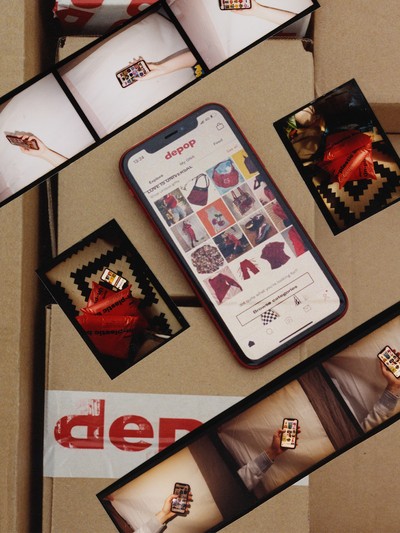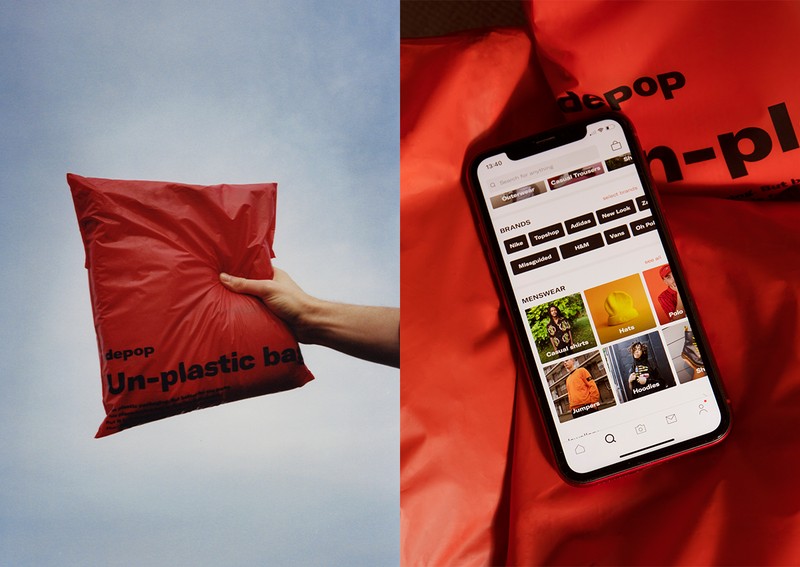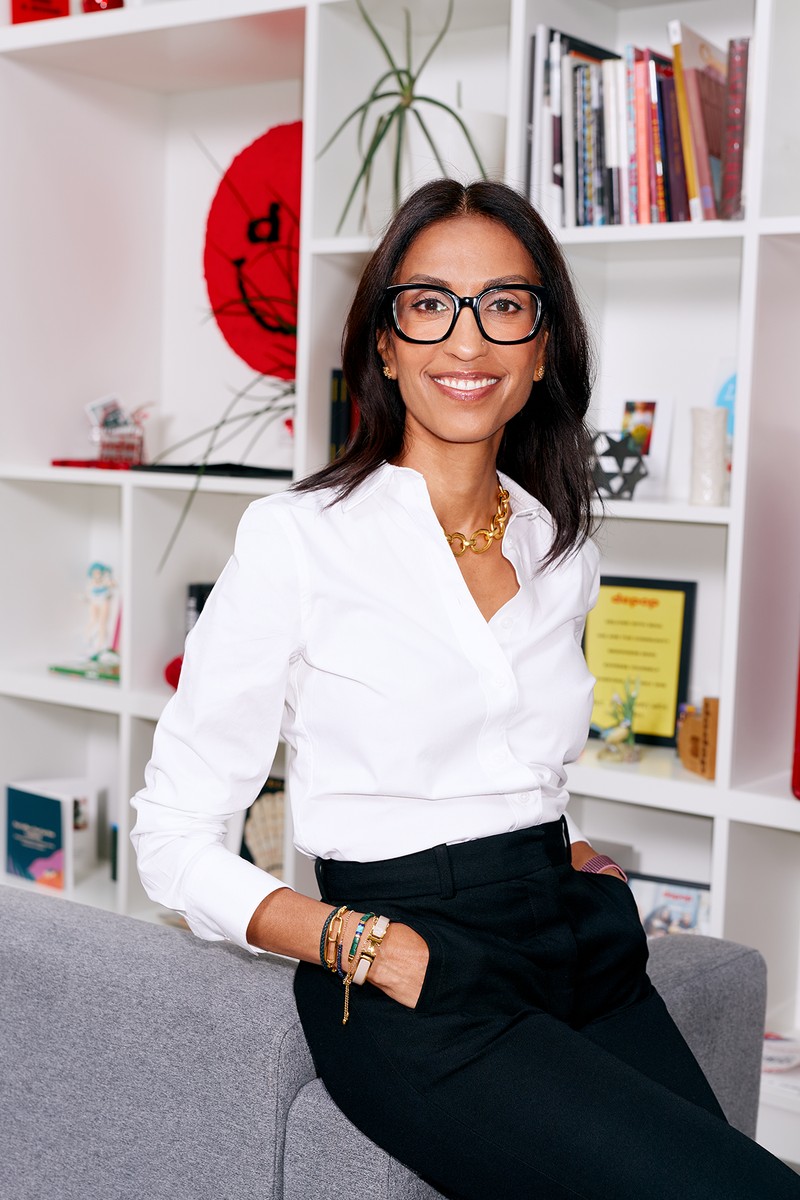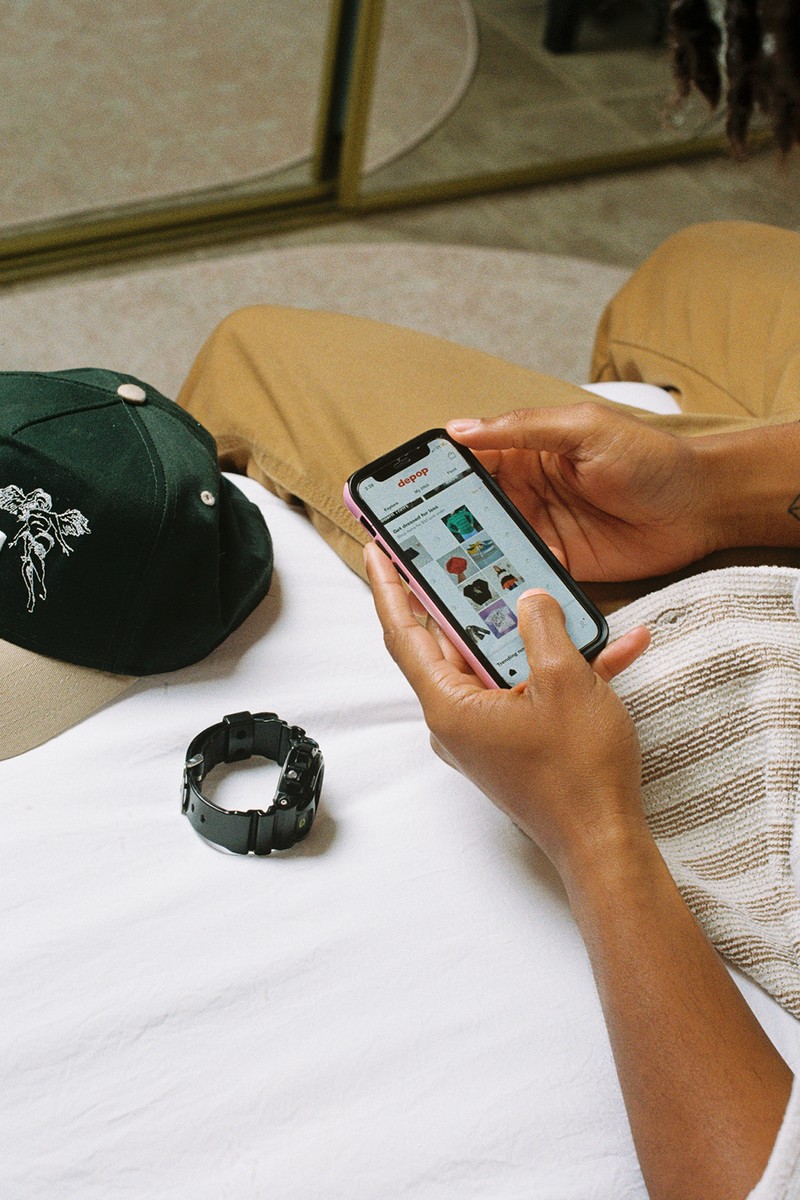

What It Takes To Make A Sustainable, Mission-Driven Business Successful
I never saw myself as a CEO. I studied economics at university, which gave me a broad education in business fundamentals, but it was quite unclear where I was going. Of course, with hindsight, I can see how all the pieces fit together to set me up for this current role as CEO of Depop. I was also lucky to grow up around entrepreneurship. My parents owned a small motel and so I grew up working there, learning by watching them. When I look back, it's not surprising to me that I’ve found my purpose in supporting entrepreneurship through the platforms that I've worked at.
There are two distinct phases to my career. The first phase was really about breadth of learning. I worked across many different industries and roles – from finance to media to non-profit. That phase was about learning about myself, building skills, but also learning about what drives me – to inform what my passion and purpose were. The second phase has been about building depth and expertise. Once I found myself at Etsy, I was able to go a lot deeper and work my way across many roles in the business and ultimately learn about community driven marketplaces. It's a combination of those things that set me up to take on this new role as CEO of Depop.
Etsy actually acquired Depop in 2021. That’s when I was tapped to take on that leadership role and there were two things about it that I found compelling. The first is the simplicity of the mission: to make fashion circular. It was important to me to work for a business that I feel really connected to and where I really believe in the product and the goal. The second thing was that Depop is a platform for young entrepreneurship. There aren't a lot of examples of platforms like this that offer an on-ramp to young entrepreneurs with no start-up capital required. It’s incredibly empowering.
The core mission of Depop is sustainability through circularity. At Depop we can affect the impact of the fashion industry at both ends of the life cycle. We know from our research that 90% of purchases on Depop displace the purchase of something new. Through doing that, we reduce demand for new items to be produced. At the other end of the spectrum, every time someone sells something on Depop, an item is given second life and doesn’t go to landfill. To date, we've given 80 million items a second life on the platform. When you understand that there’s approximately 92 million tonnes of textile waste every year, it becomes clear that the more people who engage in the circular fashion economy, the more we have the ability to impact and reduce that number.
When we think about impact, we look at it more broadly than just sustainability. We think about the impact we have on all our stakeholders across the business, how we affect our broader community – and that includes the environment, our user community and our team. We set public goals around sustainability or the environmental and across diversity and inclusion. We know that more diverse teams are more effective teams, but also as a business that serves a community through a digital product, the more diverse our teams are, the better we're able to build products that serve our community. The third piece is empowerment. It’s really about the power of an entrepreneurial platform, and one that can empower young people to be entrepreneurs.
For a sustainable business to succeed, you have to think about making circular fashion more accessible. One of the most exciting things about a business like ours is that our mission and business goals are perfectly aligned. What that means is the bigger we grow our business, the more positive impact we have on the world. A big goal of ours is to bring Depop to more people around the world. Just this past week, we announced that we're eliminating seller fees in the US following a similar move that we made in the UK earlier this year. That's a really great way to invite more people into circular fashion.
The more people who participate in the circular fashion economy, the more inventory we have. It therefore appeals to more buyers and that really drives the flywheel. Another thing we’re excited about are the investments we're making in technology, particularly in machine learning and AI to create a better experience for our users. We're applying that across all aspects of the marketplace to make it easier to sell things more quickly and seamlessly. We also want searching our 35 million listings to be easier, so you can home in on exactly the right thing that you want. Ultimately, it’ll make the whole experience more personalised.
Our proposition really sits at the intersection of style, value, and sustainability. When we think about what sets our businesses apart and what users are looking for, they’re looking for three of those things without having to compromise on any of them. And when we look across the broader commerce landscape, whether that’s new or circular commerce, we see a lot of businesses are good at delivering on one or maybe two of those things, but not all three. We think that that's what sets us apart. When you think about the bigger opportunity for a business like ours, it's not just about competing with others. It's about inspiring more people to purchase second-hand more often.
There's so much potential in the world of sustainable business. And there’s a real growth opportunity in second-hand fashion. There’s a reason we see more players and more models emerging in this space. Fundamentally, it’s a great thing because it means we're introducing more people into second-hand fashion as a primary choice. So, it's our job is to really stand out as providing the best experience and being the most compelling place to shop. Really, everything that you want already exists and our goal is to make sure that you can find what you're looking for on Depop.
We really listen to and learn from our community – and our community is also doing that with each other. The reason a person lists a particular item on Depop is that they think the audience for that item is there. Users are not just consumers of trends, but they're creators of trends as well. So, their activity, what they're listing, what they're searching for, is constantly sending signals within the marketplace. That drives community behaviour, demand and supply. It also enables us to learn from our marketplace and share our findings with our community.
What we see happening on the marketplace is a natural reflection of what we see happening culturally. We see trends show up very early – it's a reflection that our community are both trendsetters and trend consumers. They're participating on Depop in the same way they are in other social communities, like TikTok or Instagram. For example, we’ve seen a massive increase in sportswear and football-related clothing over the last month. We’re seeing the BRAT girl summer trend really show up and trainers continue to be of massive interest too.
The power of marketplaces like ours is providing a truly personalised experience for every individual. We want what you're seeing to feel unique and distinct from what you’ll see on other marketplaces because we don't just reflect what's trending generally. The more that you use the platform, the better it gets because the more we understand what styles, what brands, even what colours you’re drawn to. AI has the potential to take this even further as the platform scales, which is exciting.
Challenges and opportunities are two sides of the same coin. Our goal is to scale and bring the marketplace to more people but to do that we need to continue to be really thoughtful and disciplined about how we invest in growth. The bigger the opportunities, the better. But the thing I'm really focused on is making sure we're prioritising effectively and maintaining that discipline and focus so we can do a few things really well at any moment versus trying to do everything at the same time and spread ourselves too thin.
To ensure success – either professionally or personally – you have to be really diligent about identifying the most important priorities at any given point in time. On any day, for each week, for each month, it’s critical for me to make sure that I'm spending time on the things that are most important. Also, rest is hugely important for me. I make sure I have a consistent sleep schedule so that I'm getting enough rest daily, but I also take breaks. It means I can start a new week with more clarity and focus.
To anyone who’s keen to work for a mission driven or sustainable business, I’d say this: find clarity of purpose. It’s been very important to me to figure out what it is that I feel driven towards in terms of the broader impact that I have on the world. But when you want to go and work at a mission-driven or purpose-driven company, being clear on that authentic connection is important. Also work on your ability to zoom in and zoom out. Whatever level you are at in your career, you can build functional expertise. But what really sets people apart is their ability to step back and really connect the dots across the business to understand how their work fits into the broader strategy. The ability that someone has to put themselves in their manager's shoes or the CEO’s shoes and look at things from that perspective – that makes an employee special.
Visit Depop.com
DISCLAIMER: We endeavour to always credit the correct original source of every image we use. If you think a credit may be incorrect, please contact us at info@sheerluxe.com.





